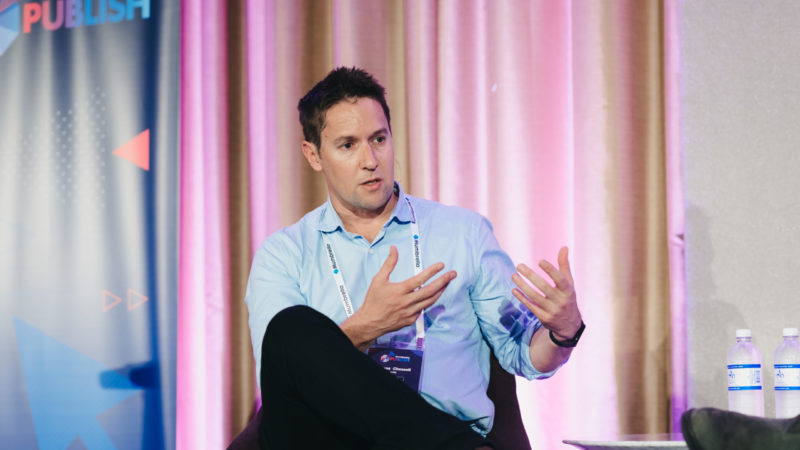Nine’s Chessell on publisher’s digital transformation, AAP deal, ‘constructive negotiations’ with journos
“We pay our journos better than anyone else in Australia,” said Nine’s managing director of publishing, James Chessell at yesterday’s Mumbrella Publish Conference, adding that the tone of the negotiations so far have been “pretty constructive”.
“We’re currently at 3.5% plus a bonus, which would take someone who’s on a hundred grand up to 5% for FY23, probably a little over 5%. The union is at 5.5% and the union wants a three-year deal, whereas we want a one or two-year deal,” he continued.

Nine’s Chessell: ‘Clicks are like a drug’

